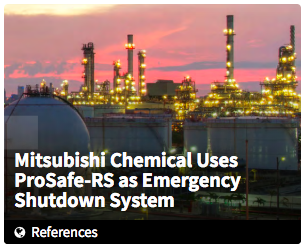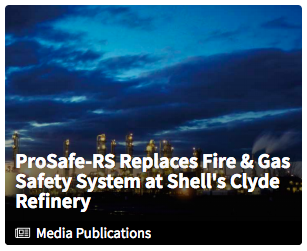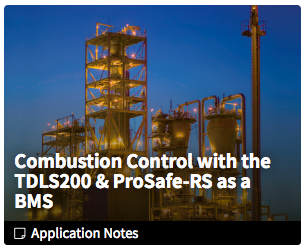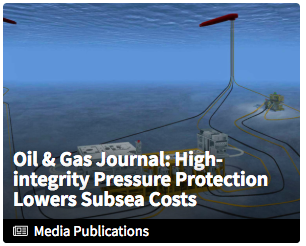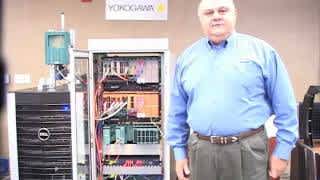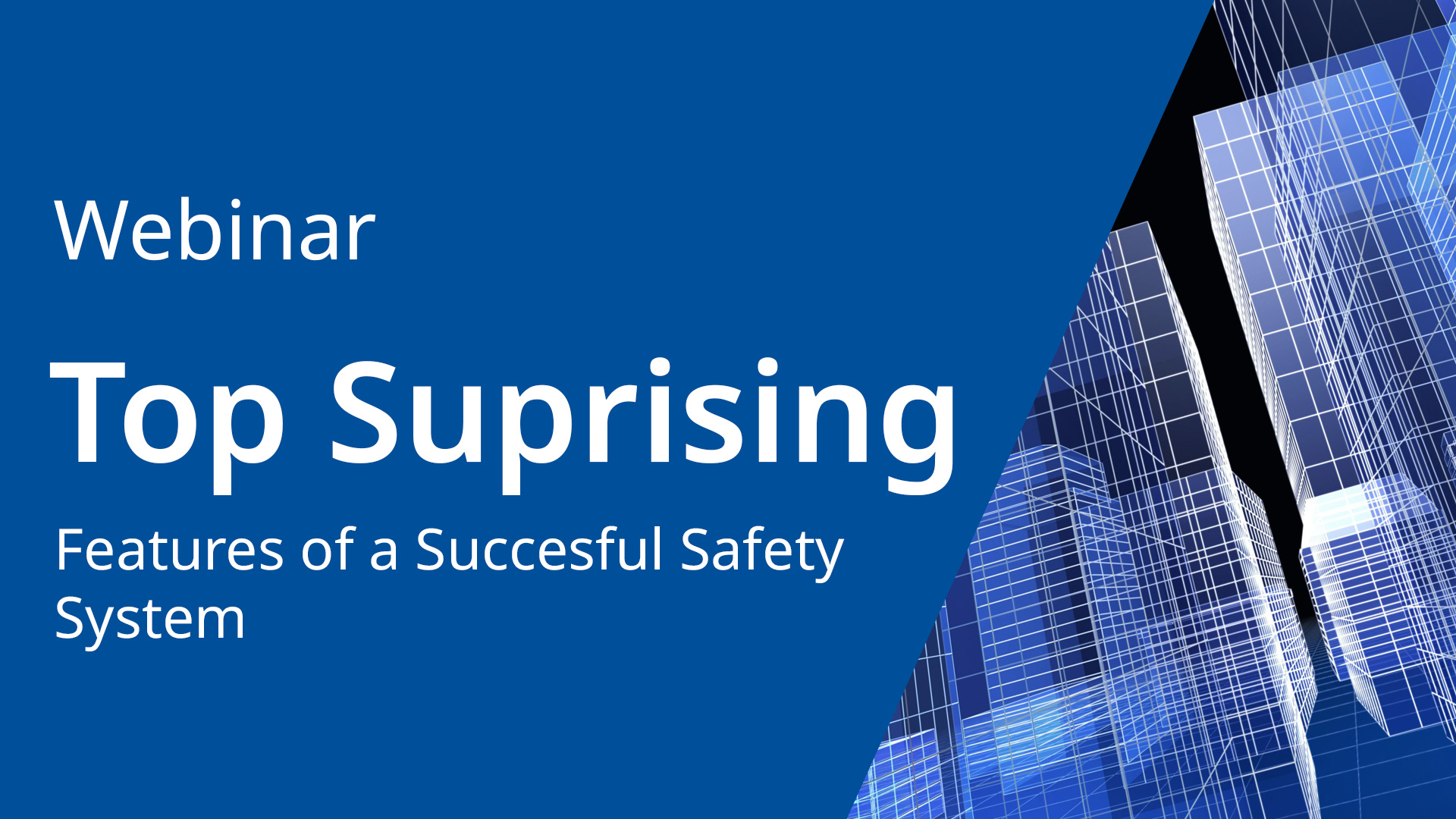Upcoming Events
-
Event Apr 15 - Dec 31, 2025 ProSafe-RS 20th Anniversary
Celebrating its 20th anniversary, Yokogawa’s ProSafe-RS Safety Instrumented System stands as a benchmark in plant safety and operational excellence.
How do Safety Instrumented Systems (SIS) Contribute to Reducing Operational Risks in Industrial Plants?
Safety Instrumented Systems (SIS) reduce operational risks in industrial plants by monitoring and controlling critical process values to prevent hazardous events. They detect abnormal conditions, initiate corrective actions, and safely shut down systems when necessary, ensuring compliance with safety standards and minimizing the risk of accidents, plant asset damage, and hazardous environment protection.
The Smart Path to Risk Reduction in Industrial Plants
Yokogawa's functional safety systems offer controls, tools, and technology empower you to mitigate risks effectively, identify hazards, and establish a secure foundation for plant operations. Our solutions ensure the reliability you need while meeting the key safety targets like IEC 61508 and ANSI/ISA/IEC 61511 compliance.
Enable the Integration of Safety and Security
Yokogawa’s safety instrumented systems (SIS) offer unparalleled reliability and high availability without compromising safety performance. We provide tailored safety solutions that meet various Safety Integrity Level (SIL) requirements for diverse process safety applications with security built in.
Reliable Systems You Can Trust
Yokogawa's Safety Instrumented Systems (SIS) feature:
- Safety Function Monitoring: Continuously monitors SIS performance to detect deviations from design targets.
- Override Safety Advisor: Manages and tracks dynamic risk assessments for bypasses within the SIS, ensuring operational safety.
- Seamless Integration: Industry-leading integration with any distributed control system (DCS), enhancing plant safety and operator efficiency.
- High Reliability: Minimizes the probability of plant shutdowns, ensuring uninterrupted operations and safety compliance.
- Regulatory Compliance: Compliant with safety standards like ANSI/ISA 84 and NFPA, ensuring adherence to industry regulations.
Discover Yokogawa's Safety Instrumented Systems (SIS) Success Stories
Explore how Yokogawa’s Safety Instrumented Systems (SIS) have enhanced safety across various industries and applications. Our solutions are tailored to meet specific industry needs, providing robust performance and operational excellence.
Whether in manufacturing, oil & gas, or chemical processing, Yokogawa's Safety Instrumented Systems (SIS) deliver unmatched safety and compliance solutions. Contact us today to learn more about our comprehensive SIS offerings and optimize your plant's safety strategy.
Yes, I Want a FREE Consultation
-
SIS (Up to SIL 2) ProSafe-RS Lite
ProSafe-RS Lite conforms to the international safety standard for up to SIL2 application, and achieves SIL2 with a single module configuration.
-
SIL1/2/3 ProSafe-RS
- ProSafe-RS Yokogawa
- Control system integration
- Dual architecture in every module
- SIL3-level protection and high reliability
-
SIL4 ProSafe-SLS
- ProSafe-SLS
- Highest-integrity, SIL4-rated applications
- Self-testing technology for fail-safe SIS solution
-
Software Based Solution Sustainable SIS
Sustainable SIS is a software based solution for optimizing and improving process safety integrated with ProSafe-RS and ProSafe-SLS. It maintains evergreen safety performance with optimum OPEX (Operating Expense) throughout the whole safety lifecycle.
Details
Safety Instrumented Systems Applications
Yokogawa’s ProSafe systems offer superior solutions for a range of applications in oil and gas, petrochemical and chemical, and conventional and nuclear power industries.
Emergency Shutdown (ESD) System
Certified to comply with the IEC 61508/JIS C 0508 (up to SIL3) international functional safety standards and fully integrated with a distributed control system (DCS), our ProSafe solutions improve plant safety by assuring a plant is securely shut down when critical conditions occur.
Fire and Gas (F&G) System
Integrating a fire and gas safety system ensures the safety of personnel and plant equipment by detecting unsafe conditions before causing potentially serious harm.
Burner Management System (BMS)
Yokogawa’s ProSafe-RS can be employed as the BMS burner shut-off system for incinerators, furnaces, and boilers, including a safety shut-off mechanism to prevent explosion and ensure plant safety.
High-integrity Pressure Protection System (HIPPS)
Used in subsea and onshore pipeline protection systems as well as chemical process plants, our safety instrumented systems offer reliable solutions for high integrity safety requirements.
Safety Consultant
Safety Consultancy Service
Yokogawa is committed to supplying industrial safety systems that meet the IEC 61508 and IEC 61511 standards. Safety management plays an increasingly crucial role in many process plants today, and widely recognized safety standards such as IEC 61508, IEC 61511 and ISA 84.00.01 have been instrumental in fostering more stringent safety requirements in process plants worldwide.
At Yokogawa, a department of specialists guarantees adherence to safety standards and issues Safety Assessment Certificates for individual applications. For more information, please visit Yokogawa Europe's Safety Services.
TÜV Rheinland Functional Safety Training Program
 Yokogawa has become a course provider for the TÜV Rheinland Functional Safety Program of TÜV Rheinland Industrie Service GmbH.
Yokogawa has become a course provider for the TÜV Rheinland Functional Safety Program of TÜV Rheinland Industrie Service GmbH.
For more information about TÜV's Functional Safety Training, visit TÜV Rheinland's website.
Resources
- Modern waste to energy facility in UK uses CENTUM CS 3000 and ProSafe-RS
- Lakeside exports at least 34MW per hour to the country's national grid
- Operational Excellence by Asset Maximization, Utilizing Yokogawa's DCS, SIS, Analyzers, and Field Instruments.
- The CENTUM VP PCS and ProSafe-RS SIS were integrated using the same engineering environment.
- Nearly 60 gas chromatographs and a large number of other types of analyzers in several analyzer houses.
- Integrated CENTUM VP and ProSafe-RS Systems Ensure Nonstop Operation of ADU/DKU Processes.
- "This is a real VigilantPlant! We will continue to improve our production efficiency."
- Legacy ProSafe-PLC SIS replaced with ProSafe-RS to improve sustainable lifecycle support at LNG terminal.
- The seamless use of the same HMI for both PCS and SIS, and improved safety and integrity.
Sandi Electricity Company selected Yokogawa to replace Foxboro IA Series at its power plant.
Yokogawa carefully extracted the configuration of old systems and successfully replaced with CENTUM VP and ProSafe-RS.
- Completion of First FPSO Project for Prosafe Production Services Pte Ltd
- Integrated Control & Safety System (ICSS) makes possible centralised plant supervision and management of all control and safety functions on this FPSO.
- HMEL selected an integrated solution from Yokogawa
- Yokogawa India oversaw and implemented the engineering, installation, and commissioning of the refinery
- Reinstrumentation project at HDPE plant replaced legacy pneumatic instruments and PLCs with integrated CENTUM DCS PCS and ProSafe-RS SIS.
- HART field devices can be monitored from the central control room with the plant resource manager (PRM) package, enabling a more predictive and proactive maintenance approach that reduces total cost of ownership.
The Mars B Project added the following greenfield infrastructure to boost production at the Mars field and nearby exploration discoveries: the Olympus tension leg platform (TLP), which has 24 well slots and a self-contained drilling rig; the West Boreas/South Deimos subsea system; and an oil and gas export system, which includes the WD-143C shallow-water platform. The Olympus tension leg platform (TLP) started producing on February 4, 2014. The TLP is the second at the Mars field and the sixth of its type for Shell in the Gulf of Mexico.
Yokogawa CENTUM VP and SIS were selected for the Evonik Oxeno's BTX facility expansion project.
CENTUM provides the operational transparency, and more efficient diagnosis of compressors which are the heart of the facility.
- Yokogawa joined forces with Air Liquide to co-innovate the step-by-step revamping plan based on Air Liquide's specific requirements.
- Customer was satisfied that Yokogawa was able to deliver its solutions on time and on budget.
In maintaining and managing industrial plants, monitoring waste water pH/ORP is both a legal obligation and an unavoidable necessity for protecting the environment. Monitoring without an attentive eye can lead to severe consequences.
In this eBook we explain how to improve fired heaters safety & efficiency by controlling combustion using TDLS technology. Download it now and learn:
- The 4 top industry challenges related to fired heaters
- How to efficiently and safely manage combustion
- How TDLS technology can improve operational excellence in fired heaters
Recently, several ARC Advisory Group analysts and management team members had a chance to sit down with the new Yokogawa President and COO, Mr. Takashi Nishijima, and several other top Yokogawa executives to discuss the company's burgeoning presence in the worldwide upstream and midstream oil & gas industry.
Yokogawa has come a long way in making its message clear to the world of process automation. Last year, the company embarked on a full-scale global marketing campaign to make customers aware of the company's focus on system reliability, security, dependability, and robustness. Dubbed "Vigilance", the campaign created a unified message for the company and greatly helped expand awareness of the Yokogawa brand and corporate philosophy.
Process automation end users are under more pressure than ever to do more with less. The current economic climate means that many automation capital projects are on hold. With capital budgets tighter than ever, users instead focus on operational budgets (where cost cutting is also a key concern), or on automation investments with a very rapid return on investment.
Learn how VMR allows an SIS to continue operating long after safety systems using other architectures would have failed.
There are already safety systems on the market that have achieved safety integrity level SIL3 of the functional safety standard, IEC61508. However, most of them have achieved SIL3 by conversion of modules into dual-redundant or triplex form.
The recent variety of industrial and railway accidents happening right before our very eyes make us painfully aware that "safety" must be put first and foremost. "Safety first" is a concept accepted by everyone and there is no room for disagreement. However, the author feels that, in some cases, the concrete objectives of "safety first" are not actually clear, and the grasp of the hazards is insufficient.
In recent years it has become increasingly common for plants to be provided not only with the control layer of a production control system (DCS, etc.), but also with the protection layer of a safety instrumented system (SIS) to reduce the risk of industrial accidents. The safety instrumented system is indispensable for avoiding risks to a plant failure.
Instrumentation devices and equipment serve for plants as the eyes, ears, nose, tongue, and skin, which are responsible for the five senses, and act as the central nervous system and brain do for human beings. The reliability and availability of such devices and equipment are the most important requirements of customers.
Upgrading and renewal of plant facilities, including production control systems and safety instrumented systems, are essential for maintaining safe and efficient plant operation. Even though these activities are categorized as R&R, they require investment and customers are often required to evaluate the profitability for obtaining approval.
Environment and safety are major topics on a global scale in recent times. As symbolized by the effectuation of the Kyoto Protocol, an interest in preserving the environment is growing worldwide, and there is also a tendency to criticize more severely, occurrences of industrial accidents that are accompanied by environmental contamination or which may cause damage, etc., to residents in the surrounding areas.
Conventional safety instrumented system (SIS) is typically installed separated from a distributed control system (DCS) to eliminate interference from the DCS and assure safety. However, users increasingly wish to integrate SIS with DCS while maintaining the safety of safety controllers.
August 2006
Many published papers discuss the benefits of subsea HIPPS and many studies show the potential cost-benefit analysis of this technology in deepwater applications. An internet search for subsea HIPPS is informative; however, little appears that discusses the systems already delivered and operating successfully.
September 2006
Launched in February 2005, Yokogawa's ProSafe-RS safety instrumented system (SIS) quickly gained a significant share of the market. Just 18 months later, 100 units had been sold-quite a feat considering the generally conservative nature of the SIS market. So what is behind this rapid success?
April/May 2007
A Yokogawa ProSafe-RS safety instrumented system (SIS) will be the nucleus of a new fire and gas safety system at Shell's Clyde (NSW) refinery. The contract includes the control system, system engineering and installation and supervision.
Is it a harmless duck or a venomous male platypus lurking in the bushes? Trish Kerin helps identify the biases that cloud our safety judgment.
For more YNOW2024 articles, please visit YNOW: A Yokogawa Users Conference | Control Global
Downloads
Certificates
- Functional Safety Management Certificate - SIS Integration (TÜV) (587.7 KB)
- TÜV SIL3 Certificate (645.5 KB)
Videos
The main feature of the ProSafe-RS R3.01 release is direct input temperature modules and support for Windows 7.
Discovered more than a decade ago, the Jack and St. Malo fields are expected to deliver more than 500 million barrels of oil. The Jack St. Malo floating production unit is the fourth deepwater facility Chevron operates and is the largest Chevron has in the Gulf of Mexico. Hear what it takes to deploy the technology and deliver first oil from this very challenging megaproject
Yokogawa South Africa was appointed to design, supply and commission the Integrated Control and Safety System (ICSS) as well as the overall Terminal Management System at Sunrise Energy’s liquid petroleum gas (LPG) Import Terminal, the largest on- and offshore open-access LPG import terminal facility in Africa. Yokogawa’s Terminal Management System, Terminal Logistic Suite VP (TLSVP), was designed and developed to meet the exacting operational demands and logistic needs in terminals. Yokogawa’s experienced engineering resources ensured the project was successfully delivered, enabling Sunrise Energy to provide accurate mass balances and efficient terminal operations to its customers.
Safety systems are often regarded as a mandatory item to have installed in your process plant. Selecting a safety system is mainly focused on implementation in the most efficient and cost effective way. Decision makers do not always realize that a safety system needs to be implemented by expert staff and it needs to be maintained over decades of its life span. Furthermore, implementing your safety system the right way, will not only be cost-effective, but can also add to the efficiency of your process. During this webinar, Jan de Breet will discuss the extra benefits Yokogawa offers you with its ProSafe-RS Safety Instrumented System.
News
-
Press Release | Solutions & Products May 23, 2021 Yokogawa Obtains ISASecure CSA Level 1 Certification for ProSafe-RS Safety Instrumented System, a Product in the OpreX Control and Safety System Family
-
Press Release | Solutions & Products Nov 1, 2019 Yokogawa Releases ProSafe-RS R4.05.00, the Latest Version of a Core Product in the OpreX Control and Safety System Family
- Use of Yokogawa-developed microprocessor unit for long-term product lifecycle support -
-
Press Release | Solutions & Products Jul 25, 2017 Yokogawa to Release ProSafe-RS SIL2 Wireless Gas Detection System
- Offering of a total system solution, including consulting and engineering -
-
Press Release | Solutions & Products Apr 11, 2017 Yokogawa Releases Enhanced Version of ProSafe-RS Safety Instrumented System
- Easy adoption and use as a fire and gas system -
-
Press Release | Solutions & Products Dec 17, 2014 Yokogawa Releases Enhanced Version of ProSafe-RS Safety Instrumentation System
- Improved control and safety instrumented system connectivity -
Looking for more information on our people, technology and solutions?
Contact Us